The first step to a potential business deal is a guide that can be described as a lead when a customer makes an inquiry about the services or goods that the company offers. These leads can be transformed into a business opportunity for the company. For an organization to be effective and successful, lead generation and its management are crucial.
Suppose you run a business and you get an inquiry about your products. This inquiry can be considered a lead. Therefore, this lead would increase the probability of establishing a business deal with the customer. This can be done with the help of follow-up via email, phone calls, or a conference. The lead is then transformed to chance and accompanied by additional sales processes. Thus, a 'lead' generated in an organization will provide them with proper analysis and the outcomes of the business opportunity in the initial phase.
A company's pre-stage revenues rely on the nature of the company. Before the transaction, the various phases include:
Pre-stages of sales
1) Creating lead
2) Activity mediums such as calls or emails to follow-up the lead
3) Organizing a discussion session
4) Send quotations
If the user wants to turn the lead into a profitable business contract the user has to follow all these steps.
Here we are discussing lead generation and its management
First of all, we need to install the sales module and Odoo CRM.
You will build leads in the CRM module, turn them into openings, and a sales quote can be made from it until the opportunity is gained.
You can see the pipeline with existing leads at different points when the CRM opens.
CRM > Configuration > Settings > CRM > Enable Leads.
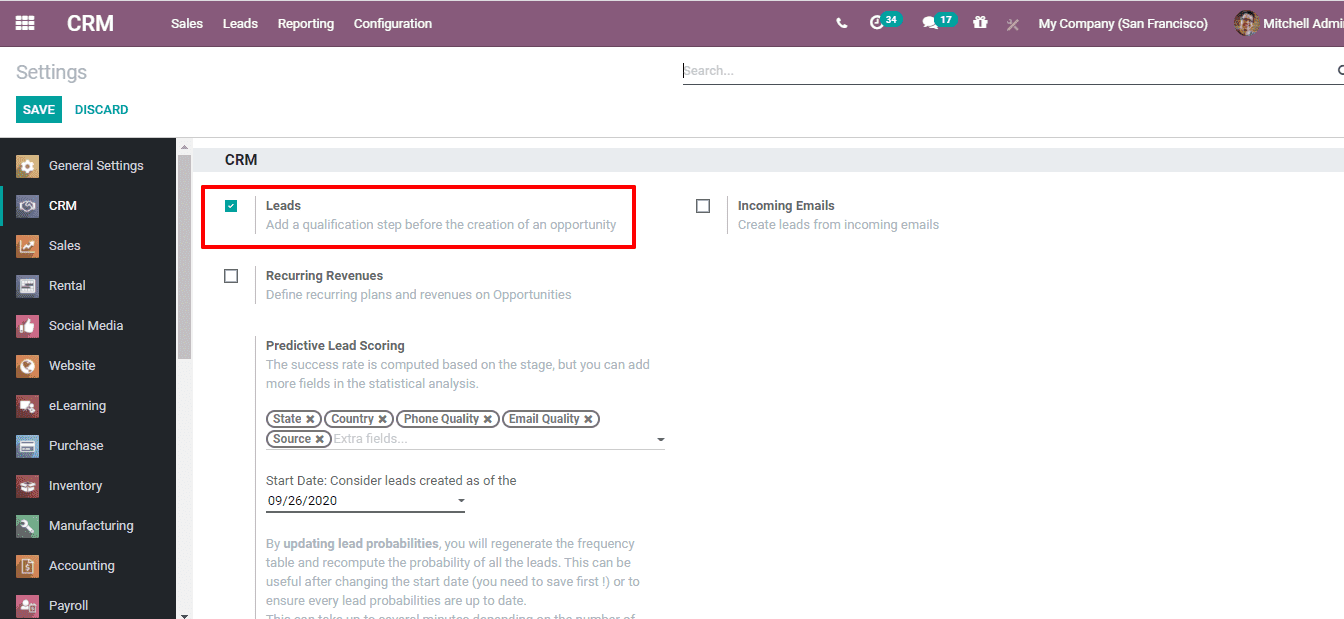
Now, a 'Lead' option appears in the taskbar. One can produce leads directly from CRM and email can also be generated based on the leads.
The CRM itself acts as a salesperson CRM > Leads > Create, generates a lead. As seen below, this will open up a lead creation form.
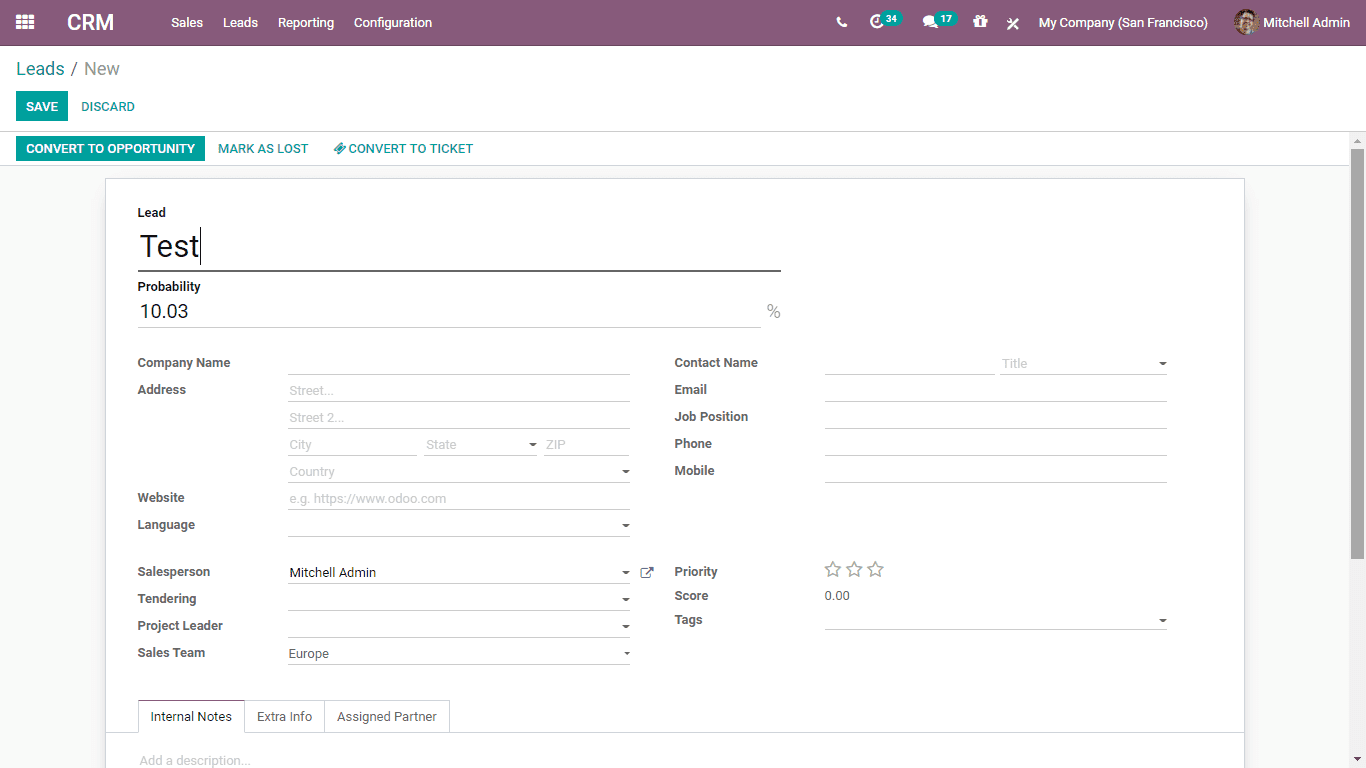
Add information like the lead name and the possibility of this lead to turn it into an advantage. Also, add business information, including company name, address, Contact details, email, job description, phone numbers, website, the language of operations required, salesperson, and sales team, for which this lead is created by the salesperson. Depending on the value, priority, and tags can also be allocated to the path.
For correspondence within the company, one can describe notes under internal notes, if required. One can add monitoring information to the additional data page. That is from where the campaign and the related information are acquired for the respective lead generation.
Just save the lead and convert it to an opportunity
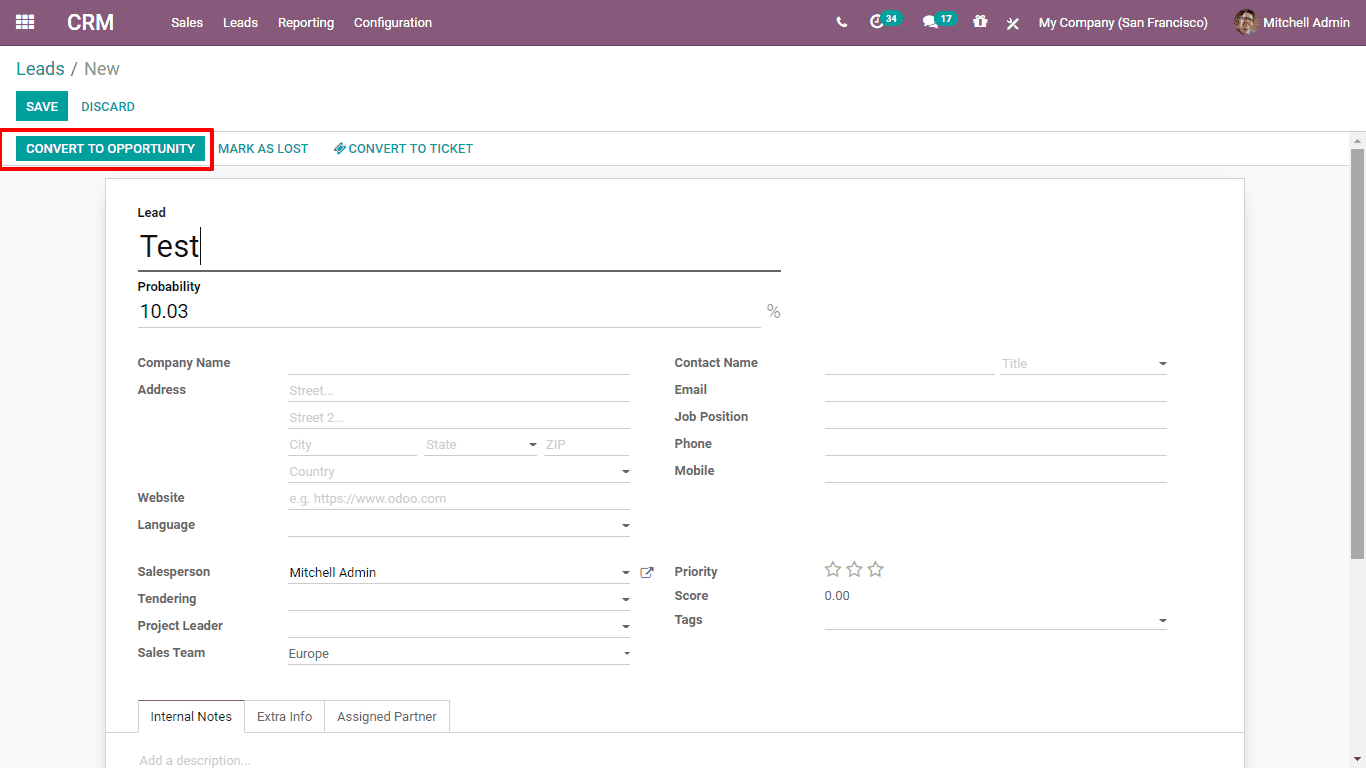
When we convert lead to the opportunity it steps to the next stage. Another window opens now.
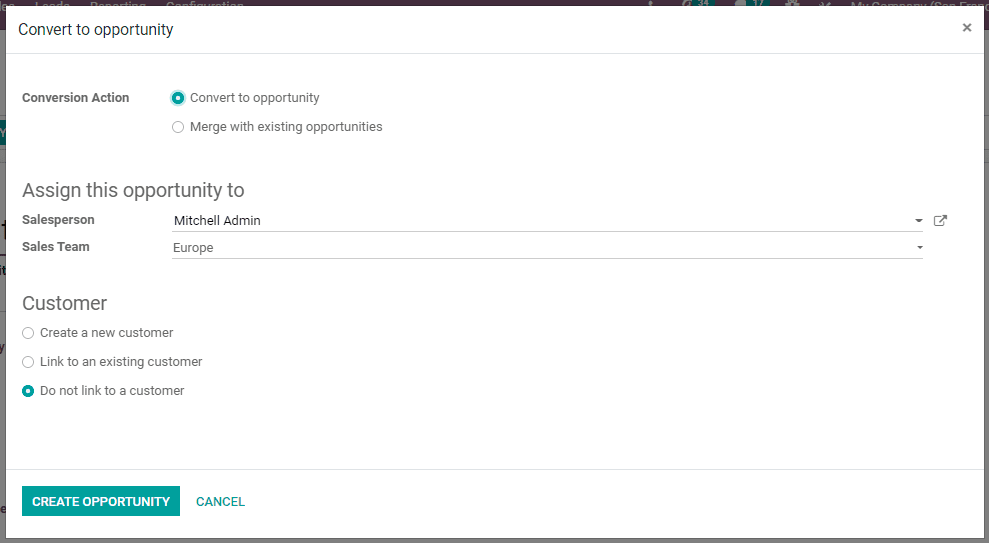
We may alter or appoint the salesperson responsible for this opportunity here. The new lead created can often be combined with an existing opportunity. It is possible to modify them using 'Conversion Motion'. The new lead can either be turned into a different possibility or can be combined with a currently available one.
Often, by having a potential client, this incentive can be connected to a client or not connected to anybody. This can also be linked to a current customer. On Clicking On Create OPPORTUNITY, the lead becomes an opportunity.
The potential for a corporation from here on is more insignificant and the potential is now being put in the pipeline. Go to CRM > Sales >Pipelines. You can find the created opportunity in the pipeline.
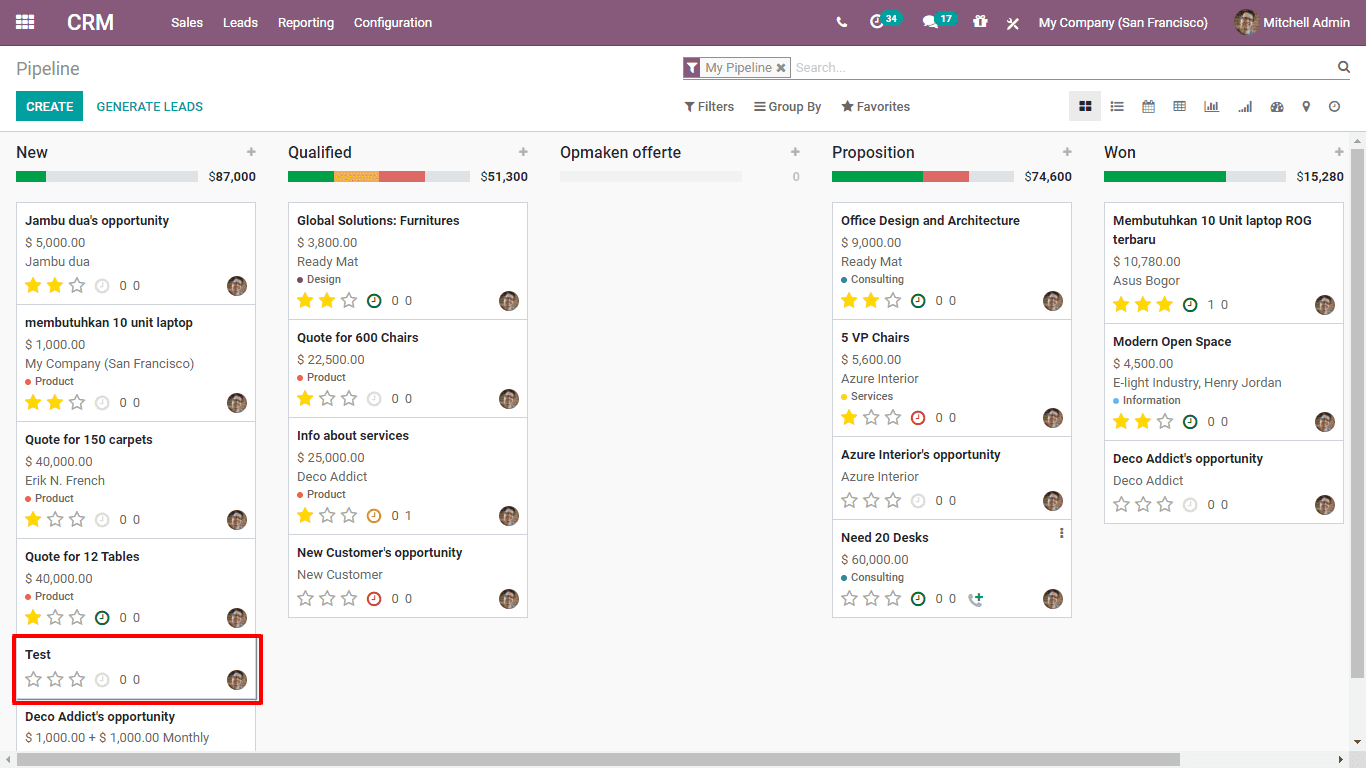
The process may be arranged for the incentive and the pipeline phases are changed from new to qualified / Proposal / Won according to the success of the lead. You may easily drag and drop the various leads to change in the pipeline phases. The pipeline phases are the steps in which the potential travels from the 'new' to the 'won' phase of the initial level.
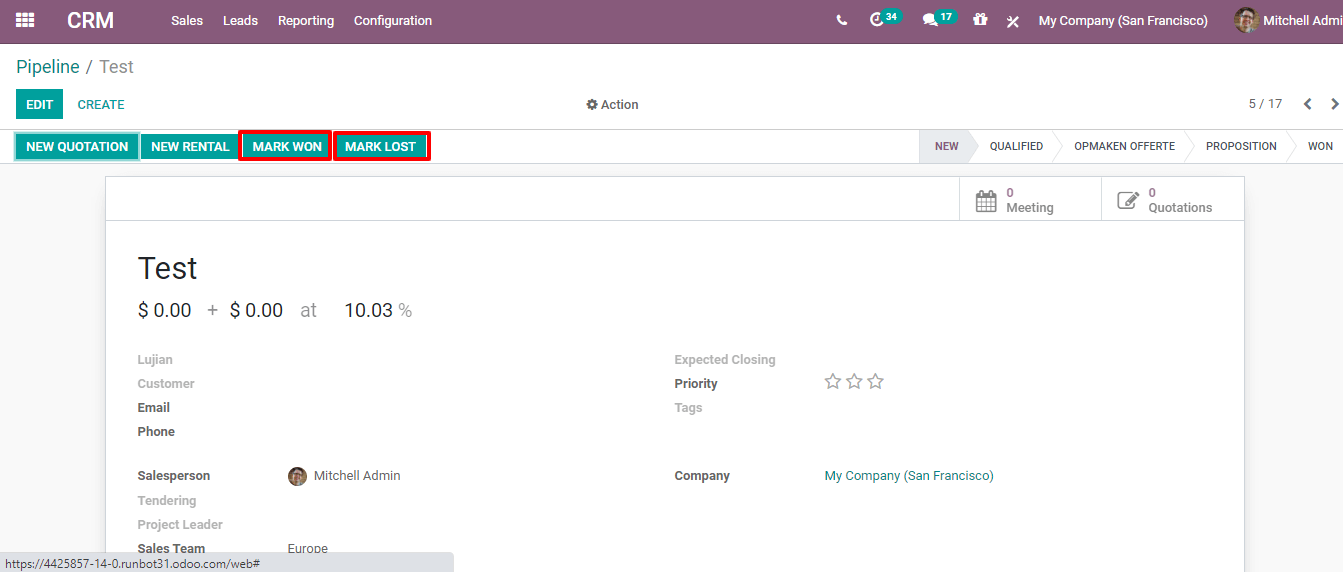
If required, you can arrange meetings or other activities such as emails, calls, etc at any point in the pipeline. Often, from every point of the pipeline itself, the accountable entity will mark the chance as won or lost.
After the salesperson marks the chance by pressing MARK LOST, he will also have to note the explanation for the same.

If by pressing MARK WON, the salesperson marks the opportunity as won, the next move will be to submit quotations, validate the deal, and make the payment.
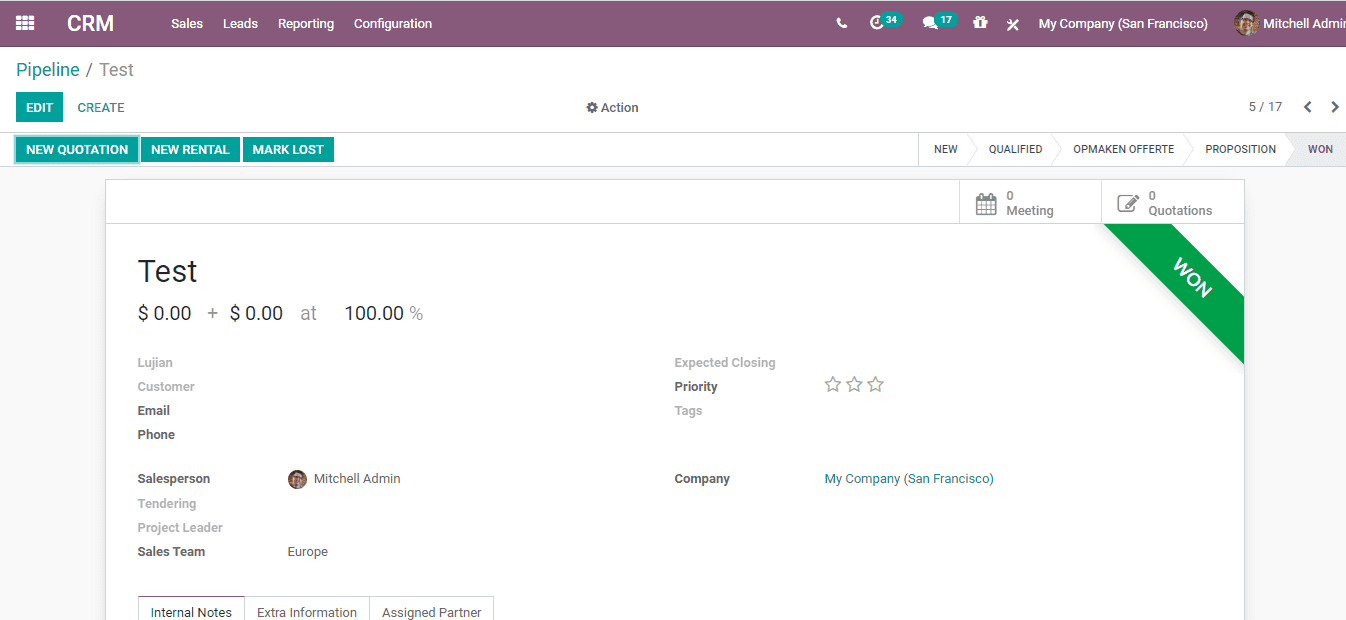
When the quotation is submitted to the customer and if the customer accepts it, we will create a sales order and invoice against it later on.
This is how the leads are managed in Odoo 14.
Watch Video: Odoo 14 CRM Features